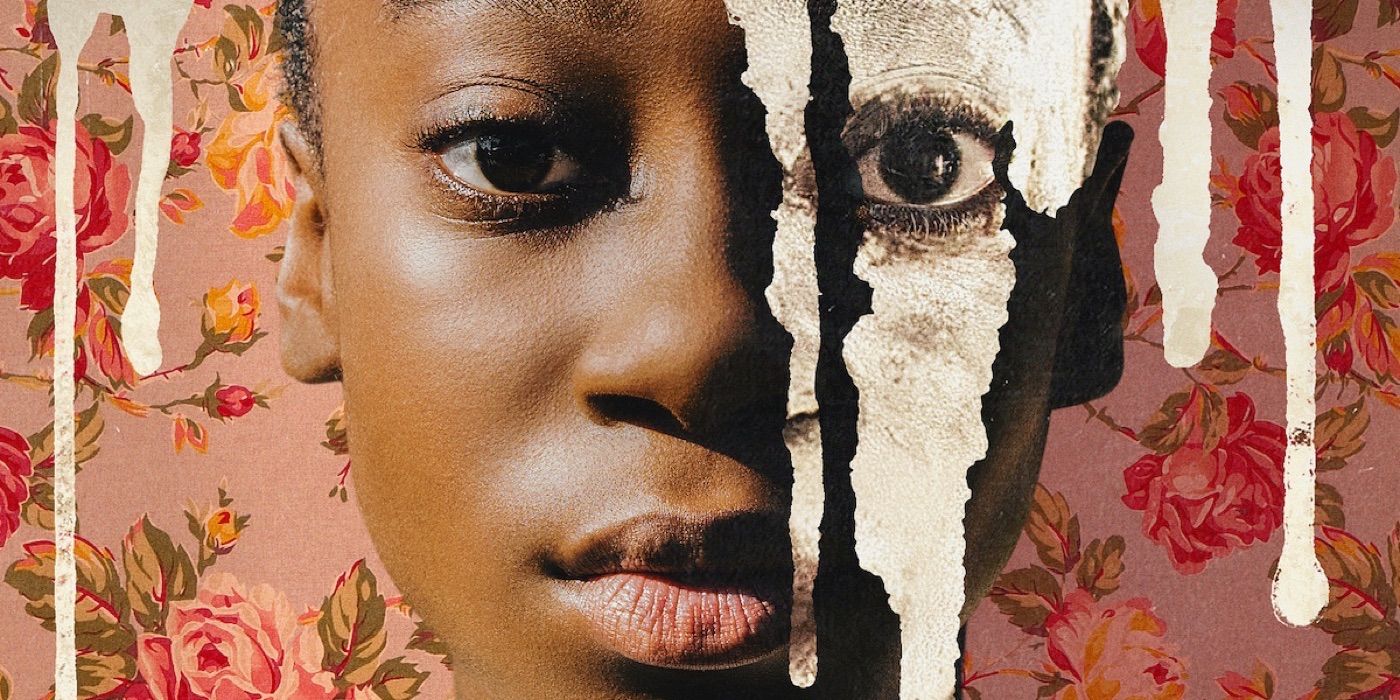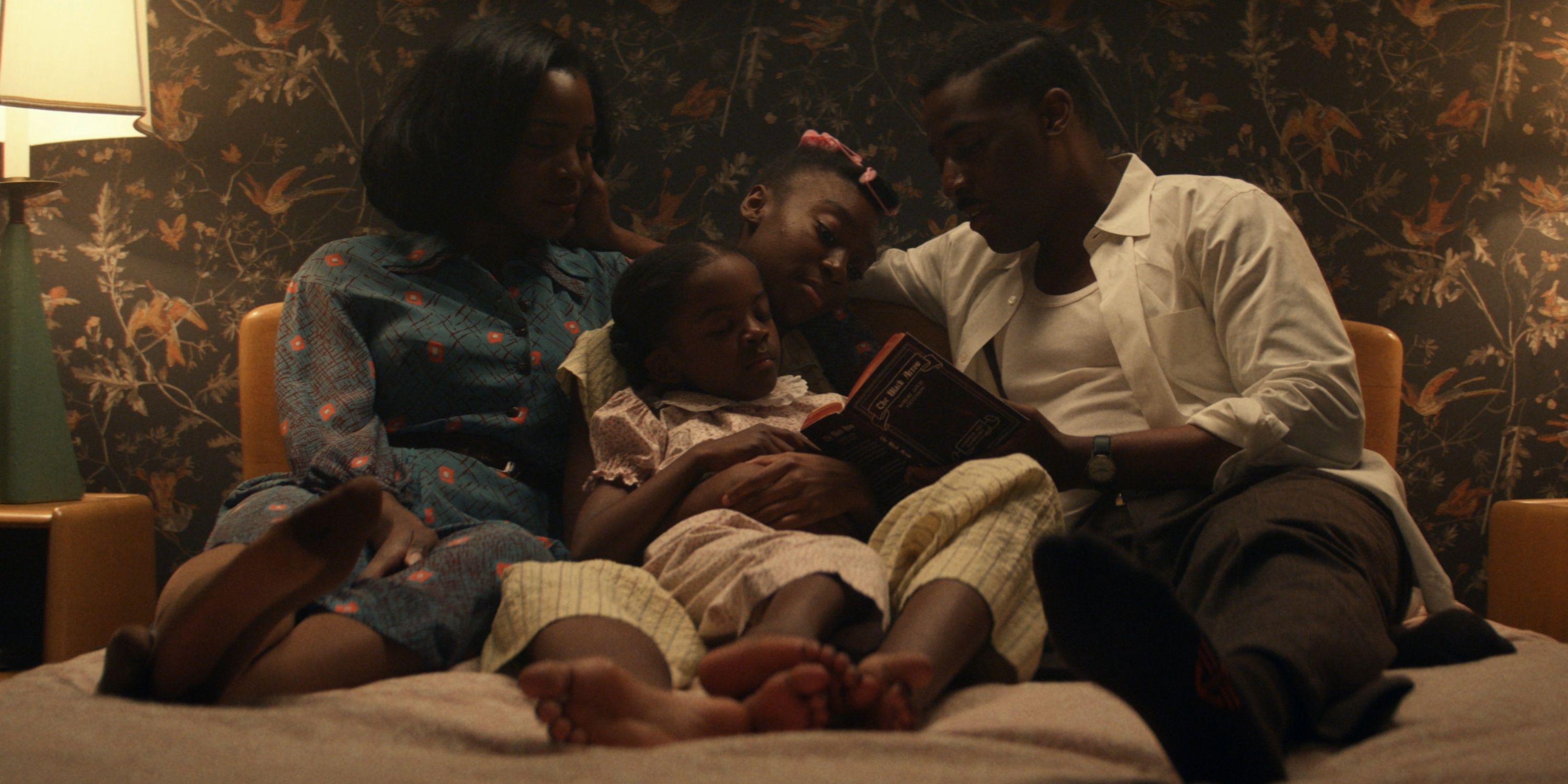[Editor's note: The following contains spoilers for Them.]
From creator Little Marvin, the first season of the Amazon Studios original anthology series Them is set in the 1950s during The Great Migration when a Black family — Lucky (Deborah Ayorinde) and Henry Emory (Ashley Thomas) and their two daughters, Ruby (Shahadi Wright Joseph) and Gracie (Melody Hurd) – move from the South into the all-white neighborhood of Compton. While otherworldly malevolent forces threaten the family, it is the actions of their next-door neighbors who will go to any lengths to protect their way of life as they know it that are far more dangerous.
During this 1-on-1 phone interview with Collider, Joseph talked about telling a horror story that takes place in the Jim Crow era, how bonding with her Them family compared to bonding with her Us family, preparing for the level of work it would take to bring this character to life, how much she grew on this project, and letting go of the role once it was all finished. She also talked about wanting to show her range as an actor, and her desire to also write and produce her own work.
Collider: How did bonding with your Them family compare to bonding with your Us family? Did it feel like you had two very different families going on there?
SHAHADI WRIGHT JOSEPH: Most definitely. I would say that it was not necessarily easier. They were two different experiences, just because of the two different time periods. I feel like it was easier to have a dynamic as a family during Us because it was closer to who we are as people today and we could relate to the characters more. With Them, you have to yourself from the character and become this totally other person to really have an accurate representation of what that experience was like in the ‘50s. So, yeah, I would say that they were very, very different.
When this project initially came your way, what was the pitch for it? Before you got to actually even read any of it, what were you told about what this would be?
JOSEPH: All I was told about the project was that it was gonna be a horror anthology series that takes place in the Jim Crow era. I immediately had some initial thoughts about what it would be like, and I was so drawn to it and attracted to it, as soon as I heard about it. I was very, very excited to start working on it and to have the opportunity to work on this with Little Marvin and Lena Waite and the rest of my Emory family. It was just fantastic.
This show requires a lot from its younger cast. When did you realize just what you were getting yourself into? Was there a moment when you wondered whether you could do it?
JOSEPH: That moment was probably after I had read the first three episodes. I remember finishing those and I was blown away. I was excited to start working on it, but I had a moment where I was like, “This is going to take some hard work. This is going to really take a lot out of me.” I had the time to prepare myself, but it wasn’t too bad of a gap, between first booking the role and actually shooting. I really did try my best to make sure that the character was still lovable and sensitive and accurate to the Black teenage girl experience.
Now that you have finished the project, what’s it like to reflect back on it and see how it all came out? How does that feel, not just an actress, but as a young woman? How much do you feel you learned on this and how much do you feel you grew, as an actor?
JOSEPH: I feel like I grew a tremendous amount, just from doing this project. It almost feels like an immersive history lesson, going back in time to this time period that I, of course, know nothing about because I was born in 2005. You really have to take a second to transfer yourself into that time period, and that can be difficult for an actor. I really tried my hardest with all of the challenges, that the script was giving us and that the story was giving us. I got a lot of help from my Emory family. We worked together to get us through that whole process.
There is so much identifiably racist imagery in this, from behavior and language to the use of the N-word, the ape comparisons, and the imagery of Blackface. What did you find most difficult to deal with, on a personal level, and what was it like to shoot some of those scenes?
JOSEPH: My most difficult scene was probably Ruby Lee at school, just seeing her struggle with the fact that she is clearly not wanted at the school, based on the small factor of the color of her skin. That was really, really difficult for me, just because it was so real and so raw. That is something that the character actually experienced, so that was really hard for me, emotionally. You have to really dig deep to really create an authentic performance, so I did try my best with that. Little Marvin and Lena Waite said that I did a good job, and I appreciated those comments from them.
What was it like to shoot the scenes where you were surrounded by the cheerleaders in the basement and the contortions are happening around you?
JOSEPH: It was really creepy. That scene was so nerve-wrecking to shoot. Oh, my gosh, I was so scared. We shot that scene so many times I can’t even count. I was a little bit nervous for it because they were like, “Okay, you’re gonna stand in the middle and dance, and then they’re gonna leave and you’re gonna dance alone for like 64 counts.” I was like, “Alone?!” There were all of these people watching me. There were so many people around, so that made me nervous. But I watched the scene and it was beautiful, and I’m glad that I went out there and I did it.
It’s such a heartbreaking and moving scene.
JOSEPH: That means a lot. It was hard to read, too, just seeing Ruby go through those things. It was difficult, but I’m glad that you appreciated it.
In what ways did you feel most deeply for Ruby and everything that she’s experiencing and going through? Were there ways that you felt most connected to her?
JOSEPH: When I really felt the most for her was when Doris says, “You’re so pretty, for a colored girl,” and she takes that as the biggest compliment in the world. You can see how far down she is, in this rabbit hole that is self-hatred. It really did break my heart.
Did you have a lot of conversations throughout this production, especially with the more challenging content in the script?
JOSEPH: Yeah. I feel like that’s what I really loved about the production. Lena and Little Marvin really gave us a lot of freedom, when it came to our characters and our nuances and our dynamics with each other. They gave us a lot of freedom with the comfortability of our lines, and how we would say and do things as people. At the end of the day, we know the Black experience very, very well. We’ve been experiencing it for the longest time. We understand what feels right and what doesn’t. We had a bunch of conversations, as the Emory family, the way that we were taking everything in, and the process of going through all of these crazy and dark scenes. I was really grateful to have them.
There are times when you each have your own scenes and moments, but you did have each other, as a family. What was it like for the four of you to have each other to get through this with?
JOSEPH: The moment that I really knew that we were becoming a real family is when I would start to feel so alone when I wasn’t shooting with them and I was only shooting my scenes at school. I would literally miss them and miss shooting with them. We have most definitely grown into this real family. We’ve morphed our own lives and our own families together to become this amazing group. I am just so happy that I got the chance to work with this amazing cast and had this amazing family to have my back.
This show is less about the otherworldly malevolent forces that are out there and more about the danger of what can be right next door to you. What was it like to be in that neighborhood and to do the scenes with all of the neighbors?
JOSEPH: The actors are completely professional, amazing actors. Watching the scenes felt so weird because you know that these people are such nice, caring, selfless actors, and then seeing them yell racial slurs at us was quite uncomfortable sometimes. I really did have a good time working with our neighbors. I remember, after we finished a scene, there were so many apologies and so much of, “Oh, my God, I’m so sorry. I feel so mean. I feel so bad.” I really do have to applaud them for their professionalism. They know how real this is for their race, as well, with their experiences and what they’re capable of, as a people. They understand. So, I really did appreciate their work and their efforts, during the entire process.
Once you learned about how the season would end and where everything was leading, what was your reaction to learning how the story about this family would end up?
JOSEPH: Once I started to get to the end, it started getting really bittersweet for me, just because you’ve grown and you’ve created this character for the longest time and you really stuck with that person for months and months on end. And then, you have to really let that person go at the end of it and that can be tough. There was a lot of sadness, but it was also a relief, as well, of just letting go of somebody. It’s not necessarily healthy to hold onto a character like that, for so long. There were mixed emotions.
You were a part of a high-profile film like Us, you voiced a character for The Lion King, and you’re making quite an impression with this show. Have you thought about the path that you’d like to take in your career? Have you thought about types of projects that you haven’t gotten to do yet, that you’d like to do?
JOSEPH: Most definitely. Number one, I would love to branch out of horror, after this project, just because I don’t want to get pigeonholed into one genre. I can do more and I do have range. I have always loved to write, so I would love to write a project and potentially produce one as well, one day. That’s definitely on the bucket list.
Are you able to talk to Lena Waithe about getting into things behind the scenes, as well?
JOSEPH: Exactly. I’m glad that I have resources and I have people around me that have such great vision.
Them is available to stream at Amazon Prime Video.



